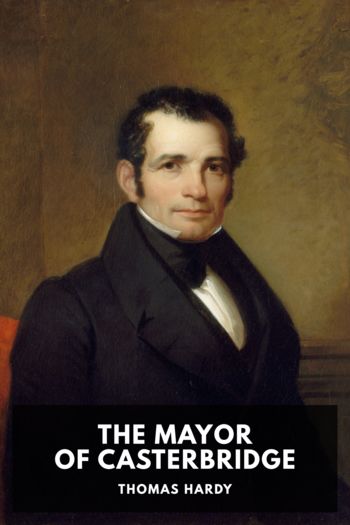Jude the Obscure by Thomas Hardy (snow like ashes .txt) 📕

- Author: Thomas Hardy
Book online «Jude the Obscure by Thomas Hardy (snow like ashes .txt) 📕». Author Thomas Hardy
By Thomas Hardy.
Table of Contents Titlepage Imprint Preface Jude the Obscure Part I: At Marygreen I II III IV V VI VII VIII IX X XI Part II: At Christminster I II III IV V VI VII Part III: At Melchester I II III IV V VI VII VIII IX X Part IV: At Shaston I II III IV V VI Part V: At Aldbrickham and Elsewhere I II III IV V VI VII VIII Part VI: At Christminster Again I II III IV V VI VII VIII IX X XI List of Illustrations Endnotes Colophon Uncopyright ImprintThis ebook is the product of many hours of hard work by volunteers for Standard Ebooks, and builds on the hard work of other literature lovers made possible by the public domain.
This particular ebook is based on a transcription produced for Project Gutenberg and on digital scans available at the Internet Archive.
The writing and artwork within are believed to be in the U.S. public domain, and Standard Ebooks releases this ebook edition under the terms in the CC0 1.0 Universal Public Domain Dedication. For full license information, see the Uncopyright at the end of this ebook.
Standard Ebooks is a volunteer-driven project that produces ebook editions of public domain literature using modern typography, technology, and editorial standards, and distributes them free of cost. You can download this and other ebooks carefully produced for true book lovers at standardebooks.org.
PrefaceThe history of this novel (whose birth in its present shape has been much retarded by the necessities of periodical publication) is briefly as follows. The scheme was jotted down in 1890, from notes made in 1887 and onwards, some of the circumstances being suggested by the death of a woman in the former year. The scenes were revisited in October 1892; the narrative was written in outline in 1892 and the spring of 1893, and at full length, as it now appears, from August 1893 onwards into the next year; the whole, with the exception of a few chapters, being in the hands of the publisher by the end of 1894. It was begun as a serial story in Harper’s Magazine at the end of November 1894, and was continued in monthly parts.
But, as in the case of Tess of the d’Urbervilles, the magazine version was for various reasons an abridged and modified one, the present edition being the first in which the whole appears as originally written. And in the difficulty of coming to an early decision in the matter of a title, the tale was issued under a provisional name, two such titles having, in fact, been successively adopted. The present and final title, deemed on the whole the best, was one of the earliest thought of.
For a novel addressed by a man to men and women of full age; which attempts to deal unaffectedly with the fret and fever, derision and disaster, that may press in the wake of the strongest passion known to humanity; to tell, without a mincing of words, of a deadly war waged between flesh and spirit; and to point the tragedy of unfulfilled aims, I am not aware that there is anything in the handling to which exception can be taken.
Like former productions of this pen, Jude the Obscure is simply an endeavour to give shape and coherence to a series of seemings, or personal impressions, the question of their consistency or their discordance, of their permanence or their transitoriness, being regarded as not of the first moment.
August, 1895.
Postscript
The issue of this book sixteen years ago, with the explanatory Preface given above, was followed by unexpected incidents, and one can now look back for a moment at what happened. Within a day or two of its publication the reviewers pronounced upon it in tones to which the reception of Tess of the d’Urbervilles bore no comparison, though there were two or three dissentients from the chorus. This salutation of the story in England was instantly cabled to America, and the music was reinforced on that side of the Atlantic in a shrill crescendo.
In my own eyes the sad feature of the attack was that the greater part of the story—that which presented the shattered ideals of the two chief characters, and had been more especially, and indeed almost exclusively, the part of interest to myself—was practically ignored by the adverse press of the two countries; the while that some twenty or thirty pages of sorry detail deemed necessary to complete the narrative, and show the antitheses in Jude’s life, were almost the sole portions read and regarded. And curiously enough, a reprint the next year of a fantastic tale that had been published in a family paper some time before, drew down upon my head a continuation of the same sort of invective from several quarters.
So much for the unhappy beginning of Jude’s career as a book. After these verdicts from the press its next misfortune was to be burnt by a bishop—probably in his despair at not being able to burn me.
Then somebody discovered that Jude was a moral work—austere in its treatment of a difficult subject—as if the writer had not all the time said in the Preface that it was meant to be so. Thereupon many uncursed me, and the matter ended, the only effect of it on human conduct that I could discover being its effect on myself—the experience completely curing me of





Comments (0)